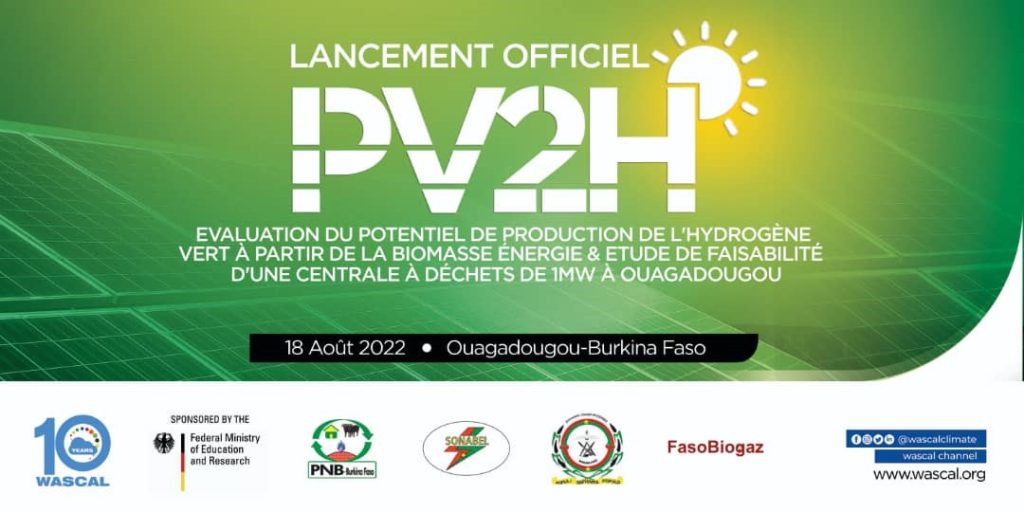
In Africa, people’s access to energy is a real challenge that slows down the economic and social development of countries. This situation is particularly true in West Africa where more than 200 million people representing about 60% of the population do not have access to modern energy services. Most countries have low electrification rates, with less than 10% access in rural areas and large disparities between rural and urban areas.
Within the framework of the Go Green Go Africa Hydrogen Initiative, WASCAL in partnership with the German Federal Ministry of Education and Research, is organising an official ceremony has launched the Project‘’Optimizing Solar PV for Green Hydrogen Production in West Africa (PV2H)”, coupled with the feasibility study of the BIO2H study. The ceremony is under the patronage of the Minister in charge of Environment, Energy and Water Resources of Burkina Faso.
Funded by the German Federal Ministry of Education and Research to the tune of 2 164 051 Euros, the PV2H project aims at providing a concrete technical response to the negative impact of dust on solar PV power plants and to propose ways to optimize the production of green hydrogen from solar PV systems under the specific climatic conditions of the Sahelian region in West Africa.
The project is an experimental investigation on the optimization of large-scale solar PV power plants with a view to providing a technical answer to the question of dust cleaning in the perspective of production of green hydrogen from solar energy in the Sahel region focusing on the case of the 33 MW Zagtouli photovoltaic solar power plant, located on the western outskirts of the city of Ouagadougou in Burkina Faso.
With regard to the BIO2H-BURKINA (Sector Assessment for Production of Green Hydrogen from Bioenergy in Burkina Faso), the main objective of the study is to take stock of the technologies, use of the biodigester and to assess the potential for multi-scale production of green hydrogen in Burkina Faso.
The 24-month project is led by WASCAL and Forschungszentrum Jülich, with other partners, including, University Joseph KI-ZERBO, University Abdou Moumouni, SONABEL, Ministry of Environment, Energy, Water and Sanitation Burkina Faso, Ministry of Higher Education, Research, and Innovation of Burkina Faso.

